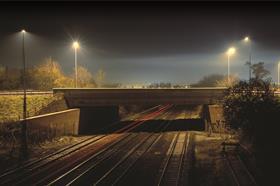But government business case weakens after costs increase

The high-speed rail line to the north of England will generate £19.6bn of construction contracts, according to government’s the latest business case for the £43bn project.
The updated business case, published this week, said £3.8bn of the contracts would be in tunnelling; £7.7bn in civil engineering; £4bn building stations, depots and stabling; and a further £4.1bn on railway systems.
It also estimated the project would create over 24,600 full time equivalent jobs in construction and that there would be further jobs in the supply chain.
However, the report also revised down the expected benefits of building the line to Manchester and Leeds, with the latest figures showing that for every pound invested there would be £2.30 of benefits, down from the £2.50 of benefits estimated in August last year.
The benefits from the first phase of the line from London to Birmingham remain £1.70 for every pound spent.
The study said that the £43bn project still met the government’s criteria for “high” value for money.
But it said increases in the budget for the scheme, announced in June, and a reduction in the value of business travel time in the government’s modelling, had dented the economic case for the line.
The report comes amid increasing political pressure on the £43bn HS2 project, with Labour warning that it could withdraw its support for the project if the budget spirals out of control.
Transport secretary Patrick McLoughlin said HS2 was the “radical solution” needed to tackle capacity problems on the railways.
He added: “A patch and mend job will not do – the only option is a new north south railway. HS2 brings massive benefits to the north, is great for commuters and the alternatives just don’t stack up.
“Now is the time to be bold and deliver a world class railway which Britain deserves and can truly be proud of. Future generations will not forgive us if we fail to take this opportunity.”
Dave Darnell, UK rail sector director at WSP, said the rail disruption caused by the storm was “a poignant reminder of just how fragile our congested rail network is and how heavily we rely on it”.
“HS2 will give us more capacity not only for extra journeys but also flexibility to strengthen this vital asset without widespread disruption,” he said.
“If the alternative, many years of delays and cancellations for much less benefit, is an option we’re prepared to take, we may have to get used to this level of chaos more often - especially as extreme weather is expected to become more frequent.”
Meanwhile, a report, prepared by consultant Atkins for Network Rail, published alongside the government’s business case, warned that scrapping plans for HS2 and focusing instead on upgrades to existing rail lines could lead to 14 years of weekend closures.
The report found that the east coast mainline, midland mainline and west coast mainline would require 2,770 weekend closures (144,000 hours of work) if they were to be improved so they could replace the intended capacity of HS2.


























No comments yet